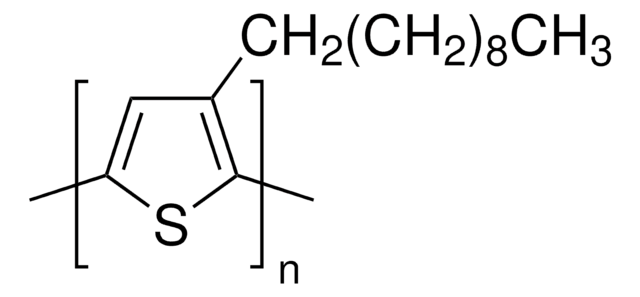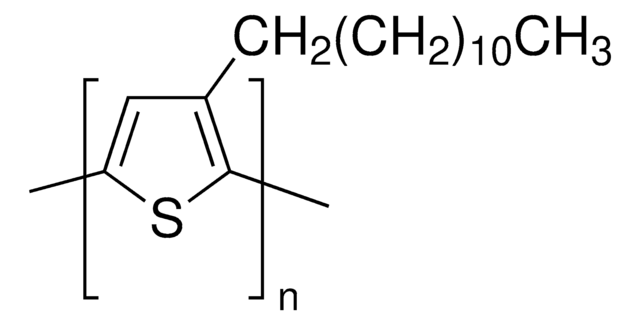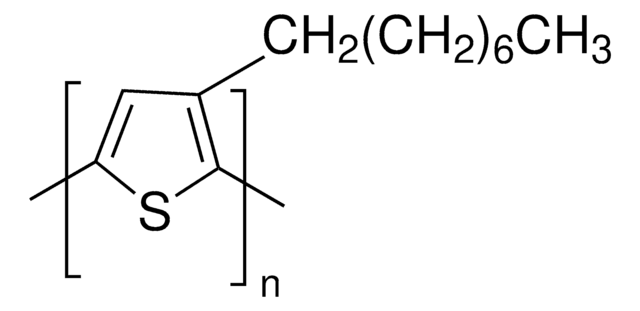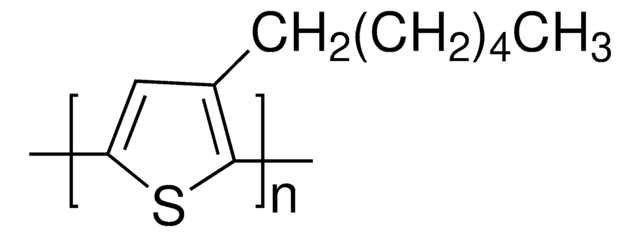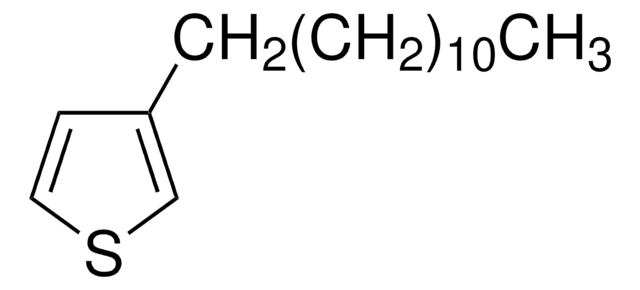510866
Poly(3-dodecylthiophene-2,5-diyl)
regiorandom
Synonyme(s) :
P3DDT
About This Item
Produits recommandés
Poids mol.
average Mn 30,000
average Mw 70,000
Solubilité
chloroform, methylene chloride, toluene, and THF: soluble
Fluorescence
λex 416 nm; λem 545 nm in chloroform
Performance des dispositifs OPV
ITO/PEDOT:PSS/P3DDT/PC61BM (1:3)/LiF/Al
Vous recherchez des produits similaires ? Visite Guide de comparaison des produits
Catégories apparentées
Description générale
Application
Rechargeable battery electrodes, electrochromic devices, chemical and optical sensors, light-emitting diodes, microelectrical amplifiers, field-effect transistors and non-linear optical materials.
Conditionnement
Informations légales
Rieke is a registered trademark of Rieke Metals, Inc.
Code de la classe de stockage
11 - Combustible Solids
Classe de danger pour l'eau (WGK)
WGK 3
Point d'éclair (°F)
Not applicable
Point d'éclair (°C)
Not applicable
Équipement de protection individuelle
Eyeshields, Gloves, type N95 (US)
Certificats d'analyse (COA)
Recherchez un Certificats d'analyse (COA) en saisissant le numéro de lot du produit. Les numéros de lot figurent sur l'étiquette du produit après les mots "Lot" ou "Batch".
Déjà en possession de ce produit ?
Retrouvez la documentation relative aux produits que vous avez récemment achetés dans la Bibliothèque de documents.
Articles
Intrinsically stretchable active layers for organic field-effect transistors (OFET) are discussed. Polymer structural modification & post-polymerization modifications are 2 methods to achieve this.
Notre équipe de scientifiques dispose d'une expérience dans tous les secteurs de la recherche, notamment en sciences de la vie, science des matériaux, synthèse chimique, chromatographie, analyse et dans de nombreux autres domaines..
Contacter notre Service technique